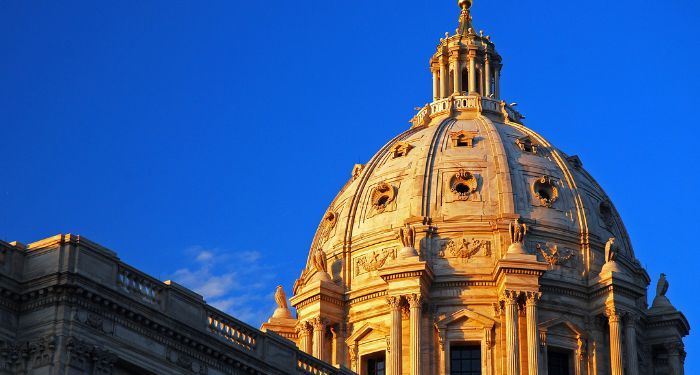
Minnesota Bill to Ban Book Bans On Governor’s Desk
Minnesota will likely be among the few US states where banning books has been banned. Senate File 3567 is part of the state’s omnibus education bill and includes a provision making the practice of banning books more difficult throughout the state and would require that all libraries adopt policies related to selection and reconsideration of collection materials. This week, the bill passed through both the state’s House and Senate and is on the Governor’s desk to sign.
The anti-book banning measures would apply to public libraries and public school library systems–SF 3567 defines public libraries to include both, as well as public institutions of higher education.
“Exposing young minds to a variety of perspectives, even those that challenge their own beliefs, is crucial for fostering social-emotional development as well as their critical thinking and problem-solving skills,” said House Representative Cedrick Frazier in a statement. Frazier authored the initial bill, House File 4373, which was then incorporated into SF 3567.
From the bill:
A public library must not ban, remove, or otherwise restrict access to a book or other material based solely on its viewpoint or the messages, ideas, or opinions it conveys.
Within that section of the bill, professional library workers would still be permitted to select materials appropriate for their collection, as well as to engage in weeding of outdated, incorrect, or materials damaged beyond repair. What it does is make it against the law to remove books based on the so-called “culture wars”–i.e., what we have seen nationwide relating to the unprecedented and enduring removal of books by or about LGBTQ+ people and people of color. This protects both the First and Fourteenth Amendment rights of students, faculty, and staff in public schools and libraries, not to mention showcases a commitment to providing access to materials that reflect the diverse experiences of those entities.
The bill goes on to legislate that every public library must have policies and procedures in place that allow parents or guardians to not only opt their children out of specific materials but which also allows them to challenge materials. This is good, as it is part of the First Amendment Rights granted under freedom to petition. That policy would be developed by the institution’s governing body (and it’s very likely most institutions already have them, but this codifies the requirement to have them).
Moreover, the bill would put the responsibility of handling challenges and complaints within the hands of the actual library professionals, which are defined in the bill itself.
(b) The policy must not impair or limit the rights of a parent, guardian, or adult student under section 120B.20.
(c) The policy must establish that the procedures for selection and reconsideration will be administered by:
(1) a licensed library media specialist under Minnesota Rules, part 8710.4550;
(2) an individual with a master’s degree in library science or library and information science; or
(3) a professional librarian or a person trained in library collection management.
Further, results of those challenges would need to be reported to the state educational authority. That information would include identifying information about the materials being challenged, which is helpful for tracking patterns in content or authorship being targeted. In other words, it’s a robust paper trail held by the state’s Department of Education.
Not only does this keep institutions accountable but it will likely have an impact on the biggest and least likely to be identified/reported on issue with book bans: silent/quiet censorship, or the removal and/or failure to acquire books on certain themes or topics by library workers due to fear around the potential challenges those items may face.
“In Minnesota, we are making sure our libraries and schools are a safe space for exploration and discovery, not places where knowledge is censored. Exposing young minds to a variety of perspectives, even those that challenge their own beliefs, is crucial for fostering social-emotional development as well as their critical thinking and problem-solving skills,” said Frazier.
It is very likely Governor Tim Walz will sign the bill into law. He backed the initial proposals early on in the legislative session. While this iteration is not as strong as the initial version, it still provides significant protections for these democratic institutions and those who use them throughout the state.
When signed, it will go into effect immediately.
Other states that have signed anti-book ban bills include Illinois, Maryland, and California. Several other states still have active bills on the agenda.








